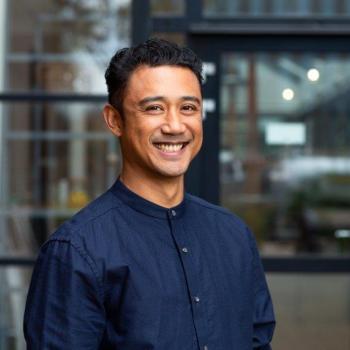Towards a better connection
Background
Young refugees with a residence permit (status holders) in the Netherlands are vulnerable to develop mental health problems and problematic substance use. They can experience symptoms of mood disorders and trauma and problematic substance use. Particularly, young status holders (YSHs),aged 18-25, have limited knowledge about substance use, its relation to mental health issues, and the available care.
Explanations for mental health problems and problematic substance use amongst YSHs are diverse. Mental health issues may arise from traumatic events before or during the journey to the Netherlands, and the lack of knowledge about the effects of substances. YSHs also face significant stress, often dealing with financial problems, language difficulties, challenges in starting or maintaining education, and finding and retaining employment. These mental health issues and stress increase the risk of problematic substance use. At the same time, YSHs barely avail of mental health care and addiction services whilst said services have a hard time reaching them.
To address this problem, the project "Mental Health and Addiction Prevention for Former Refugees: We do it together" was launched in 2021. It aimed to facilitate early recognition of mental health and addiction issues among YSHs and encourage them to seek help. This was done by co-creatively developing a prevention strategy. In the course of that project, we observed that mental healthcare and addiction services on one hand and welfare organizations working with YSHs on the other hand, lack cooperation. A preliminary conclusion was that this hindered YSHs from accessing mental healthcare and addiction services, and vice versa. Furthermore, another preliminary conclusion was that the lack of experiential knowledge from YSHs in the mental healthcare and addiction services acted as a barrier to access the said services.
In 2023, a research on 1) how to improve the cooperation between mental healthcare and addiction services on one hand and welfare organization for YSHs on the other hand and 2) whether the use of experiential knowledge from YSHs in mental healthcare and addiction services can improve the access of said services, was approved. The duration of the research is from September 2023 to August 2028. This research aims to develop a service, process, platform or product wherein all the knowledge and experience of mental healthcare and addiction services for YSHs are merged and made accessible to healthcare and welfare professionals and YSHs. Additionally, this service, process, platform or product, aims to facilitate cooperation between mental healthcare, addiction and welfare professionals.
Method
Human-Centered Design will be used as a method to understand the perspectives of all parties involved, to collectively define the root problems, and to envision, prototype and test solutions.
Results
The preliminary results of the research will be presented.
